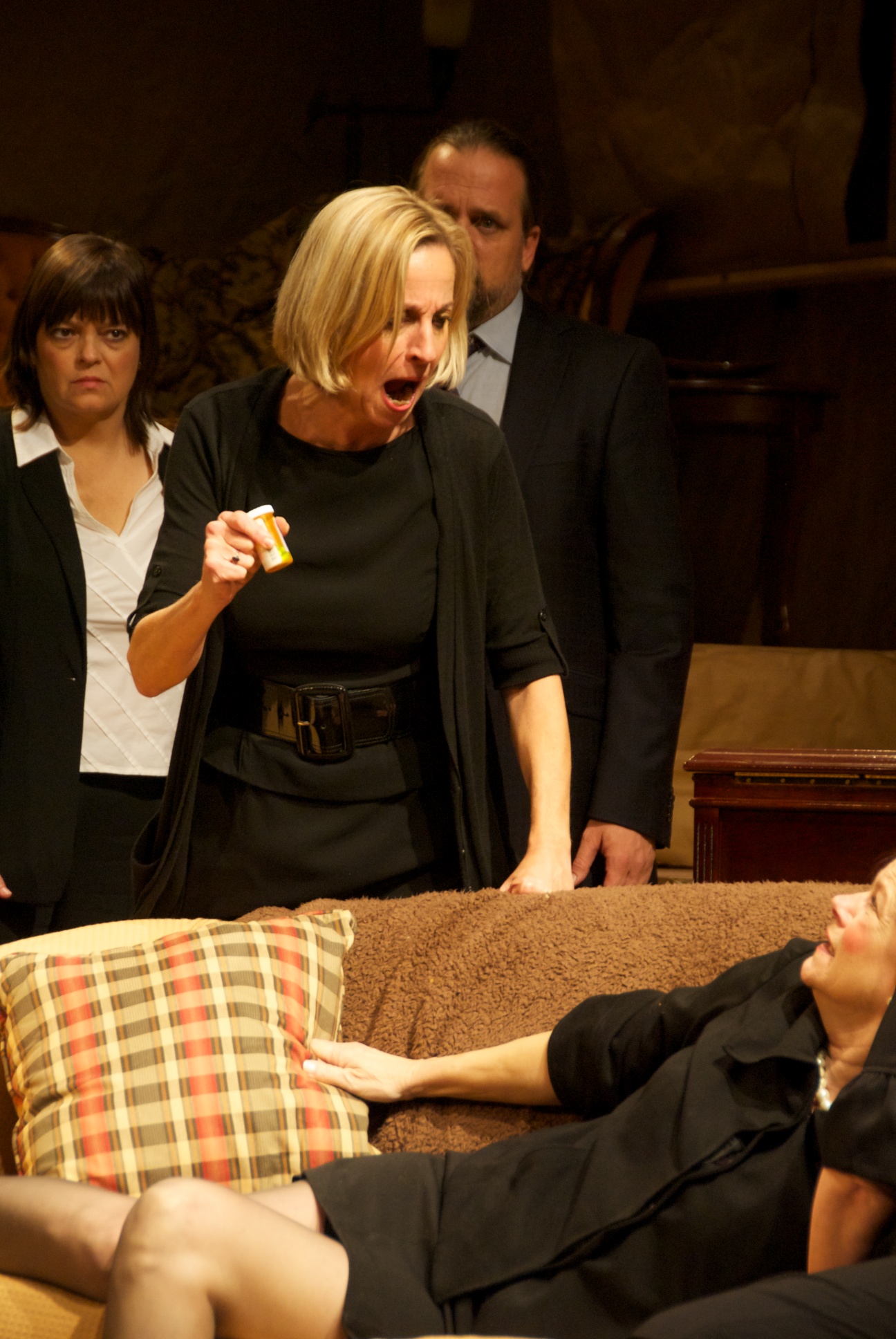The Trustus Theatre stage play People, Places & Things by English playwright Duncan Macmillan is not feel-good entertainment. But don’t let that stop you from seeing it.
It isn’t pretty, this sobering depiction of the messy, meandering journey from drunken debauchery to addiction to detox to denial to relapse to denial to acceptance to the beginnings of lifelong recovery.
The play follows Emma, a troubled actress, through the process of acknowledging her debilitating addiction to drugs and alcohol. Portrayed with authenticity and skill by Christine Hellman, Emma is a drunken, self-absorbed mess who suffers from imposter syndrome on the stage. As a result, she is crippled by self-doubt and has difficulty distinguishing between her stage roles and her often mind-bending, party-filled reality. “If I am not in character, I am not sure who I am,” Emma reveals.
The most riveting scenes in People are when Emma is agonizing through detox. She shakes and writhes and suffers a terrifying madness complete with hallucinations as many versions of herself emerge repeatedly from her hospital bed like cloned apparitions also seizing and retching and screaming in pain. All the Emmas together reach a cacophony of terrifying volume.
Incredibly compelling stage design, lighting, and sound convey the emotion and multi-sensory torture Emma experiences. Background screens run video behind the actors that further strengthen the performance. Recorded sound, including broadcast static and echoing narratives, as well as flashing overhead lights contribute to the feelings of confusion and mania.
When Emma expresses that the therapist and administrator of the facility cannot possibly understand what she and the other patients are going through, it is poignantly revealed that each themselves is a longtime recovering addict.
In her alternating roles as doctor, therapist, and “mum” to Emma, Erin Wilson is believably straightforward, authoritative, and empathetic as group therapy facilitator. Josh Kern is equal parts likeable and knowing as the rehab facility’s administrator Foster. Each patient’s story adds depth and complexity to the multi-faceted struggles of recovery. Some of the therapy role-play scenes dragged some but included notable performances from William Paul Brown and Alex Malvern.
While Emma’s first attempt at inpatient rehab fails, she has taken the lessons of therapy to heart and finds her way back to pick up the pieces once more. In trying to rationalize her substance abuse, Emma says things common among addicts like: “I needed something to take the edge off,” and “drugs and alcohol have never let me down.”
There are moments of needed comic relief that emphasize the subtle contradictions inherent in the culture of substance abuse. In one nonsensical scene, the patients almost competitively spit out stories demonstrating how much more “fucked up” they are than the others — as if there was a certain dysfunctional pride in fucked-up-edness.
Ultimately, the patients agree contextually that “The problem is not us; it’s the world.” However they also take responsibility for their behaviors and find comfort in realizing “We’re all the same.”
Director Dewey Scott-Wiley is to be commended for delivering a brilliant play that bravely takes on an ugly topic with empathy and wit. The entire cast performing in People tackle unflattering and starkly challenging roles to tell an insightful story that touches nearly every American family on some level.
The play does end on a positive note, with Emma acknowledging the “gift of desperation” and — having done the work — eventually resuming the necessary practice of going to auditions. This recovery milestone shows that it is possible to return to some semblance of a normal life. This revealing play is well worth seeing.
People, Places & Things (produced in partnership with LRADAC and The Courage Center) runs at Trustus Theatre through Oct. 12.





